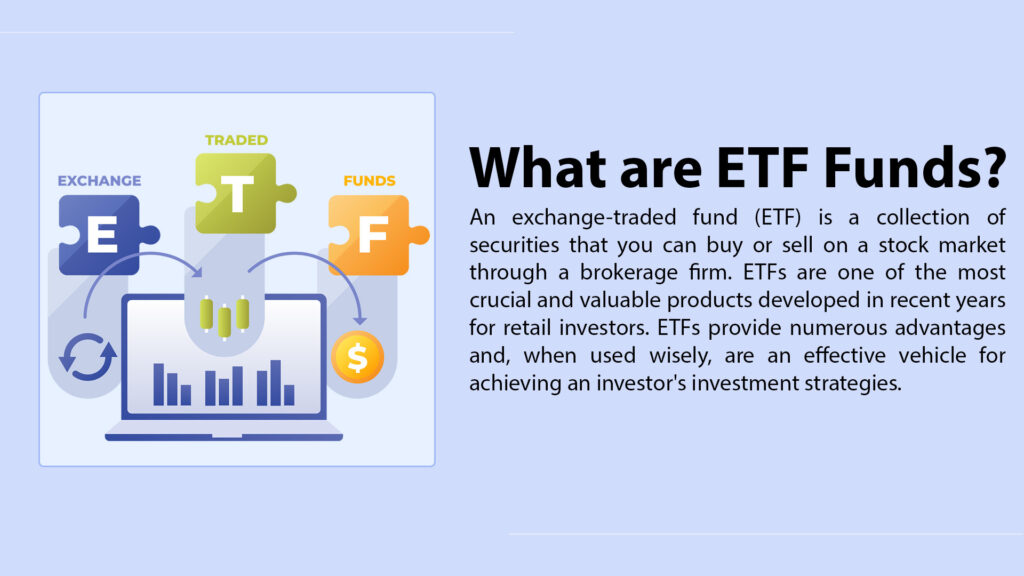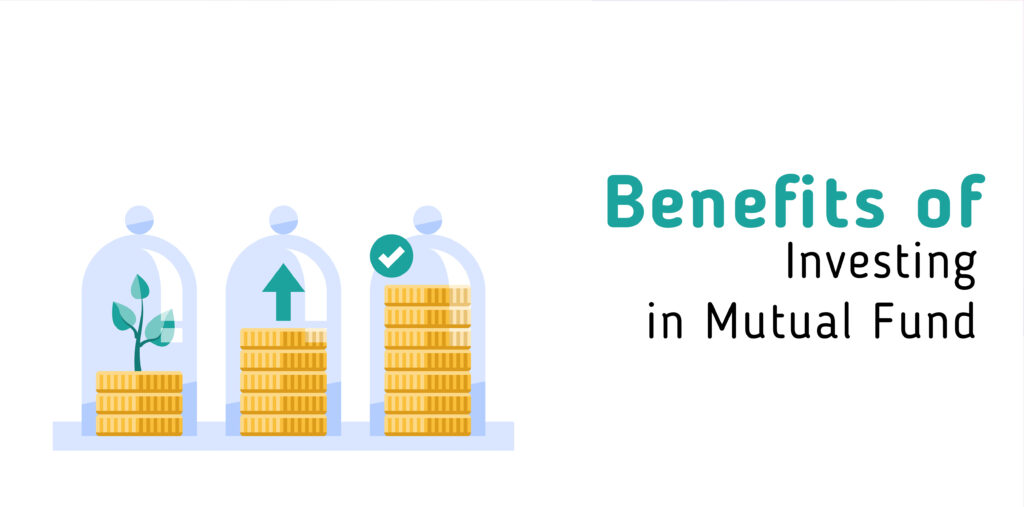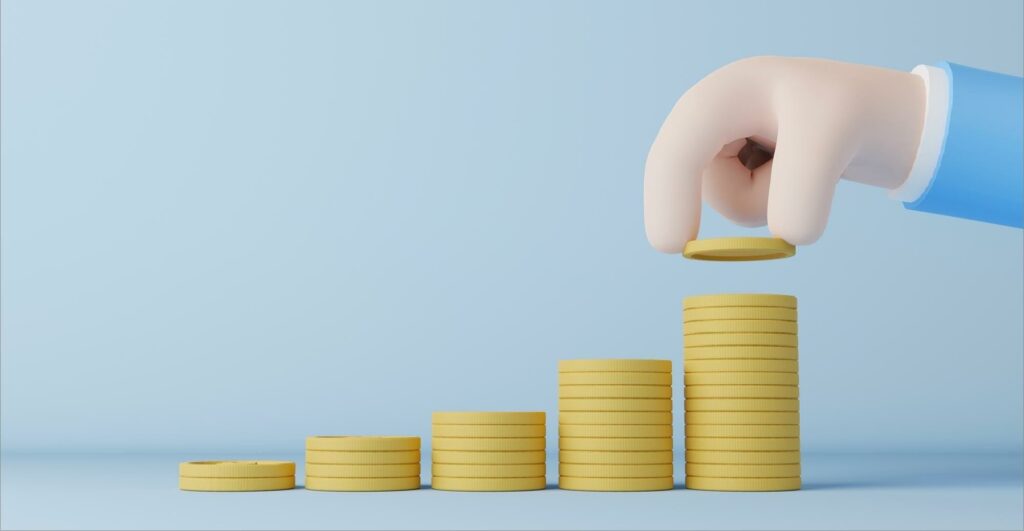An exchange-traded fund (ETF) is a collection of securities that you can buy or sell on a stock market through a brokerage firm.
ETFs are one of the most crucial and valuable products developed in recent years for retail investors. ETFs provide numerous advantages and, when used wisely, are an effective vehicle for achieving an investor’s investment strategies.
ETFs are available in almost every asset category, from traditional investments to so-called alternative assets such as commodities or currencies. Furthermore, new ETF structures lead investors to short markets, gain leverage, and minimise short-term capital gains taxes.
How Does an ETF Fund Work?
During the day, when the stock markets are open, ETFs are traded just like company shares. An ETF, like a stock, has a ticker symbol, and daily trading price data is easily collected during the trading day.
The value of shares of an ETF, unlike company shares, can shift on a daily basis due to the constant issuance of new shares and redemption of share capital. The ability of an ETF to continuously issue and redeem shares keeps the price level of ETFs in line with the underlying assets.
Although the ETF is intended for retail investors, investment firms play an important role in ensuring the ETF’s liquidity and monitoring integrity by purchasing and selling creation units, which are large blocks of ETF shares that can be traded for baskets of the underlying assets. When the valuation of an ETF deviates from the underlying asset value, institutions use the arbitrage mechanism provided by creation units to carry the ETF price back on track.
How Should You Invest in ETFs?
ETFs are listed on the stock exchange in the same way that stocks are. The trading price fluctuates during the day due to buyers and sellers who influence the demand and supply of ETFs.
The price of these securities can be similar to the net asset value (NAV) of the underlying value they represent. Because each ETF is appointed a unique ISIN number, you can hold ETF units in your Demat account.
Depending on market circumstances, you can buy ETF units on the stock market or through AMC’s terminal. The units are credited to your bank account on the clearing day of the ETF type you purchased.
For example, if you order 10 units of an equity ETF for INR 5,000, the price will fluctuate throughout the day based on the price fluctuation of the stocks held in the equity ETF. On day T+3, the units will be credited to your Demat account.
Similarly, to sell your equity ETF units, use your brokerage account to place a sell order, just like you would for share capital.
Conclusion
Investing in ETFs is gaining popularity in India; the AUM of ETFs till current date is INR 4,18,402.06 (4 cr. 18,402 Source: AMFI), and numerous ETFs of different kinds are arising. It is simple to engage in an ETF, but before you do so, make sure you choose the one that best fits your financial goals.






